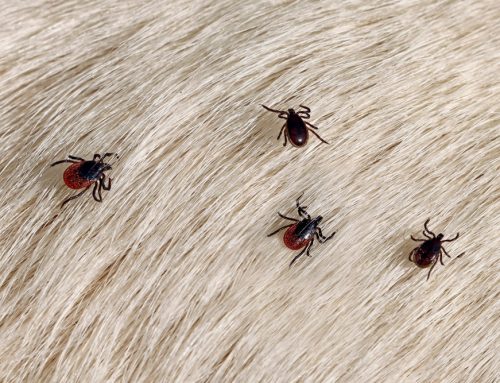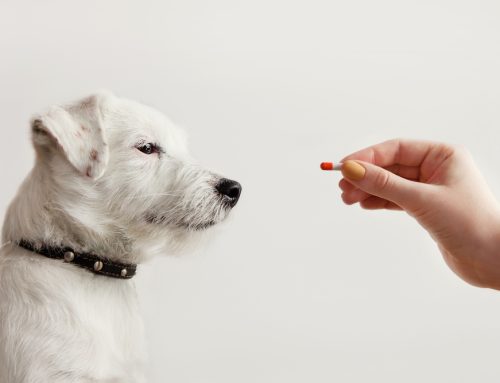Pets have short life-spans compared with humans, but what if you could add years to your pet’s life? You can! Our Best Friends Veterinary Care team explains ways you can improve your pet’s health and wellbeing and prolong their life.
#1: Schedule regular veterinary wellness visits for your pet
Your pet’s ancestors had to hide vulnerabilities such as illness to prevent being targeted by predators. Your pet may not have to worry about mountain lions or tigers, but they have the same instincts as their predecessors and are excellent at hiding pain or disease signs. Thus, their condition can be advanced before evidence they are sick becomes apparent. Regular veterinary wellness visits help detect health issues in the early stages when they are easier to manage, and typically provide a better prognosis. A typical veterinary wellness visit includes:
- Physical examination — Our veterinary team evaluates your pet from nose to tail to determine if abnormalities are present. Heart murmurs or arrhythmias, lung congestion, swollen lymph nodes, and abdominal masses can be detected during a thorough physical examination.
- Blood work — We perform a complete blood count (CBC) and biochemistry profile to assess your pet’s overall health. Screening blood work can detect conditions such as diabetes, kidney and liver failure, infection, and anemia.
- Urinalysis — Our veterinary team assesses your pet’s urine to check for abnormalities that can indicate conditions such as kidney disease, urinary tract infections, urinary calculi, and diabetes.
- Fecal — We evaluate your pet’s feces to check for parasites such as roundworms, whipworms, hookworms, coccidia, and giardia.
#2: Provide appropriate dental care for your pet
Most pets have some degree of dental disease by 3 years of age. Poor dental hygiene can lead to issues such as bad breath, bleeding gums, loose or missing teeth, and painful infections, and worse, the bacteria that cause dental disease can enter your pet’s bloodstream, damaging organs throughout their body. Appropriate dental care is important to keep your pet’s mouth and body healthy, and steps should include:
- Scheduling regular professional veterinary dental cleanings — A professional veterinary dental cleaning is the only way to effectively remove the dangerous bacteria from under your pet’s gumline. This procedure is performed under general anesthesia to ensure your pet doesn’t experience unnecessary stress or discomfort, and to allow our veterinary professionals to thoroughly assess and clean your pet’s mouth.
- Brushing your pet’s teeth — Plaque begins to develop a few hours after a professional veterinary dental cleaning, and can harden to form tartar in 48 to 72 hours. Therefore, your pet’s teeth should be brushed daily to help remove plaque before tartar can form. Always use pet-friendly products on your pet’s teeth, since human dental products can be toxic to pets.
- Feeding your pet dental treats — Dental treats with the Veterinary Oral Health Council’s seal of approval can help prevent plaque and keep your pet’s breath smelling sweet.
#3: Administer year-round parasite preventives to your pet
All pets, including those who live solely indoors, should receive year-round parasite control to protect your pet from dangerous parasites, such as:
- Fleas — Many pets are allergic to flea saliva, and suffer profound itching that can lead to serious skin problems. In addition, fleas can transmit tapeworms and Bartonella henselae, and cause anemia.
- Ticks — Ticks carry illnesses such as Lyme disease, anaplasmosis, ehrlichiosis, and Rocky Mountain spotted fever that can be extremely debilitating for pets.
- Heartworms — Dangerous heartworms are transmitted by mosquitoes and can severely damage your pet’s heart and lungs.
- Intestinal parasites — Intestinal parasites, such as tapeworms, roundworms, whipworms, and hookworms, can cause gastrointestinal (GI) issues, as well as more severe issues for young pets.
#4: Keep your pet at a healthy weight

More than 50% of pets in the United States are considered overweight or obese by their veterinary care provider. Excess weight predisposes pets to several health complications, including diabetes, kidney disease, cancer, and arthritis. Follow these tips to keep your pet at a healthy weight:
- Seek advice — Ask our veterinary professionals if your pet is at an ideal weight. We can devise a safe weight loss program, if necessary.
- Weigh your pet — Weigh your pet on a pet scale every three to four weeks to monitor their weight.
- Assess your pet’s body conditioning score (BCS) — Observe and palpate your pet in several key areas to assess their BCS, which more sensitively evaluates your pet’s weight status.
- Calculate your pet’s energy requirements — Use a pet calorie calculator to determine your pet’s required daily calories.
- Measure your pet’s food — Use a measuring cup or a kitchen scale to accurately measure your pet’s meal portions to ensure they receive the correct amount.
- Exercise your pet — Ensure your pet gets daily physical activity. Every pet is different, with different exercise requirements, so consider your pet’s age and breed when developing an appropriate exercise regimen.
Unfortunately, your pet can’t live forever, but following this advice can help add years to their life. If you would like to schedule a wellness visit, contact our Best Friends Veterinary Care team, so we can ensure they are healthy and happy.








Leave A Comment